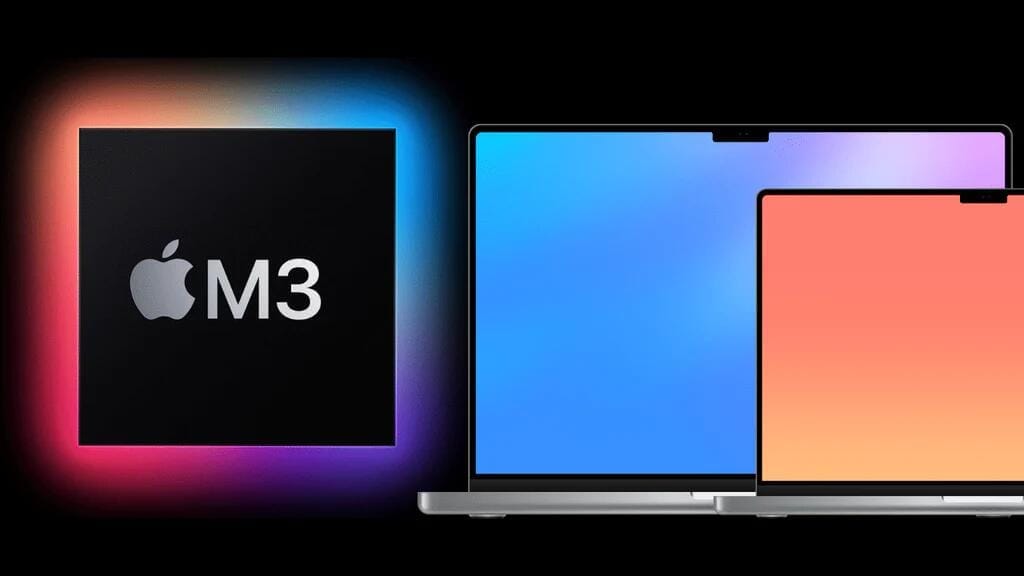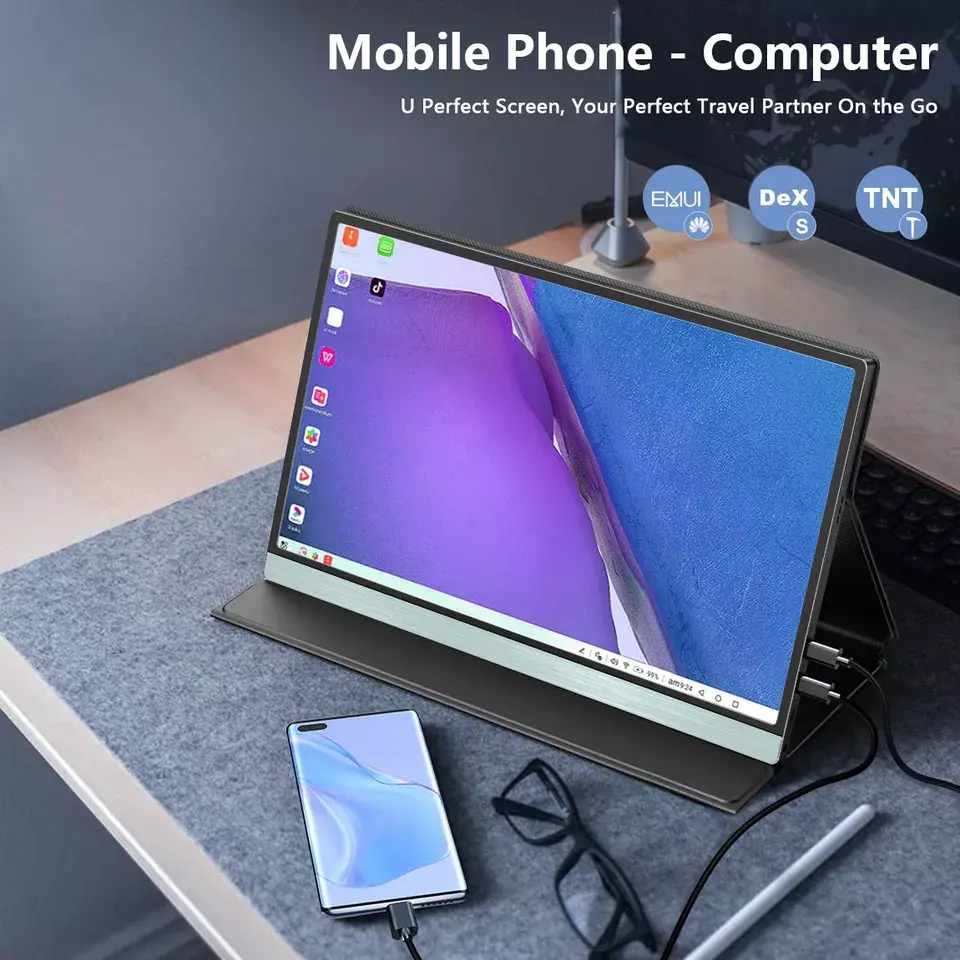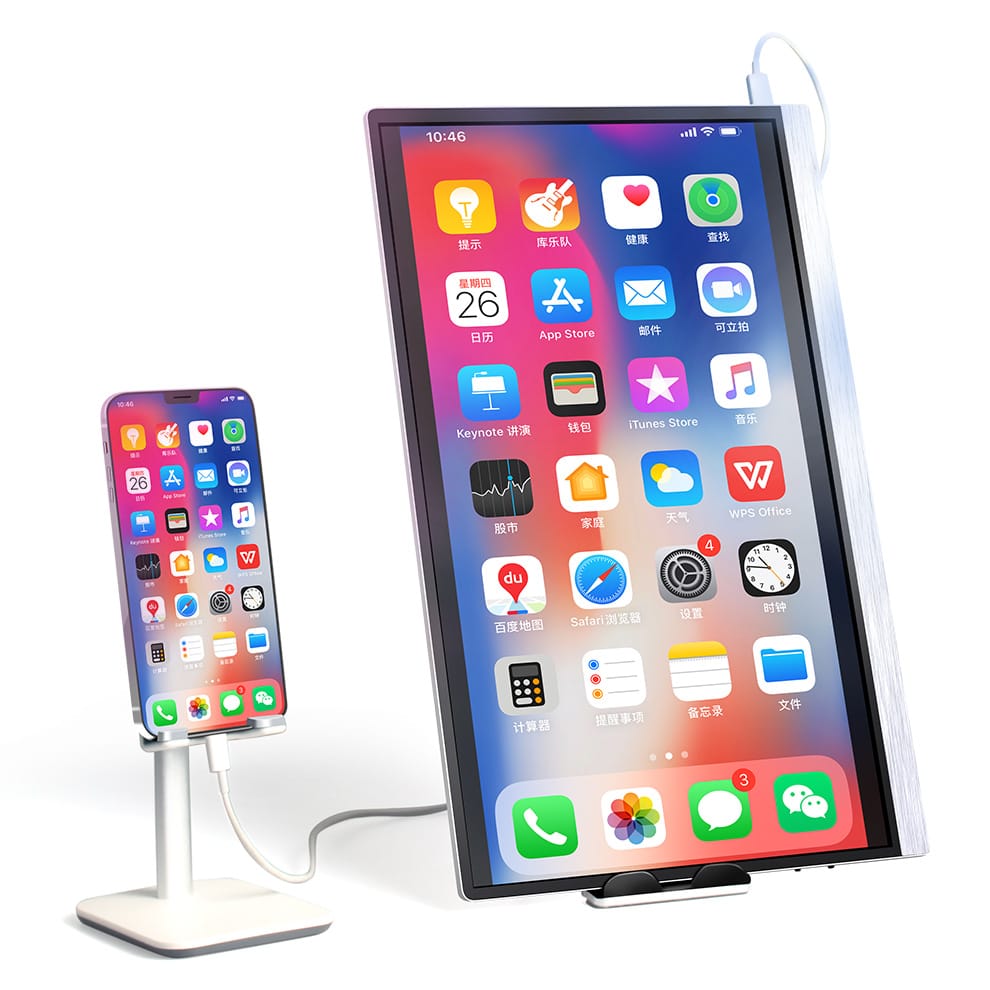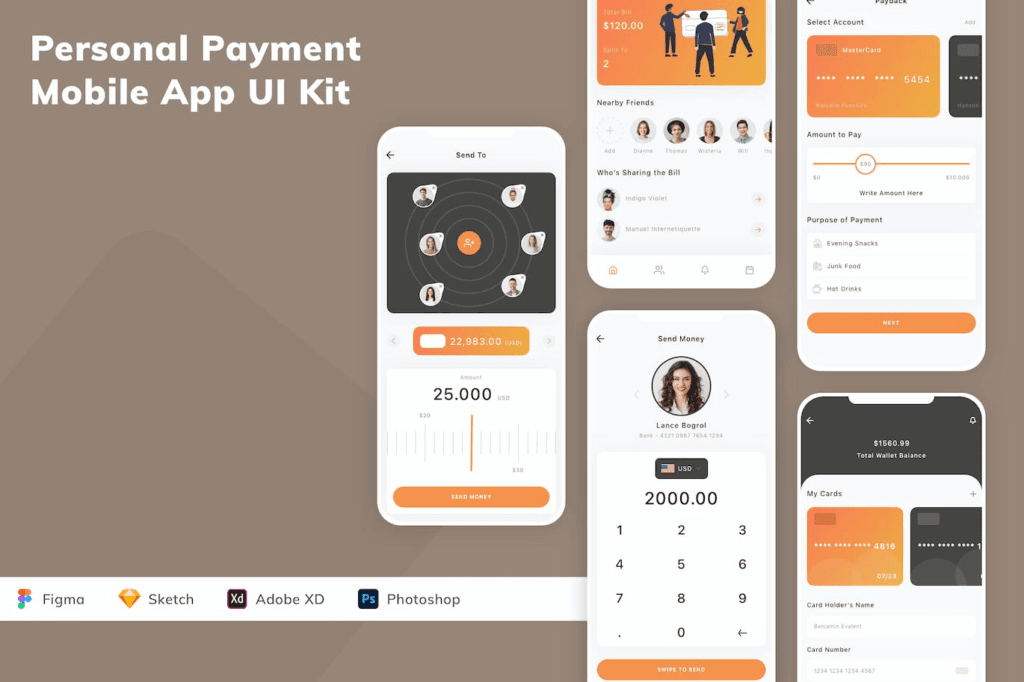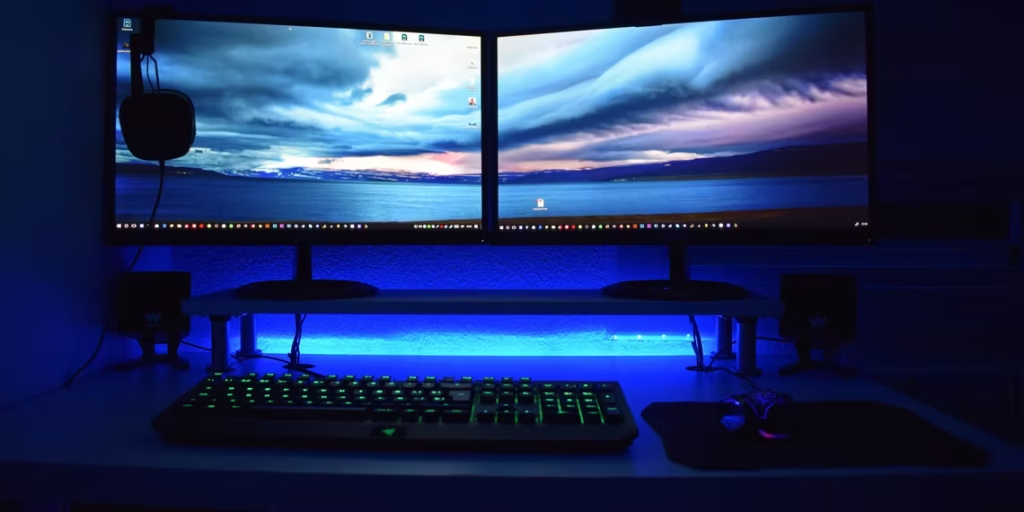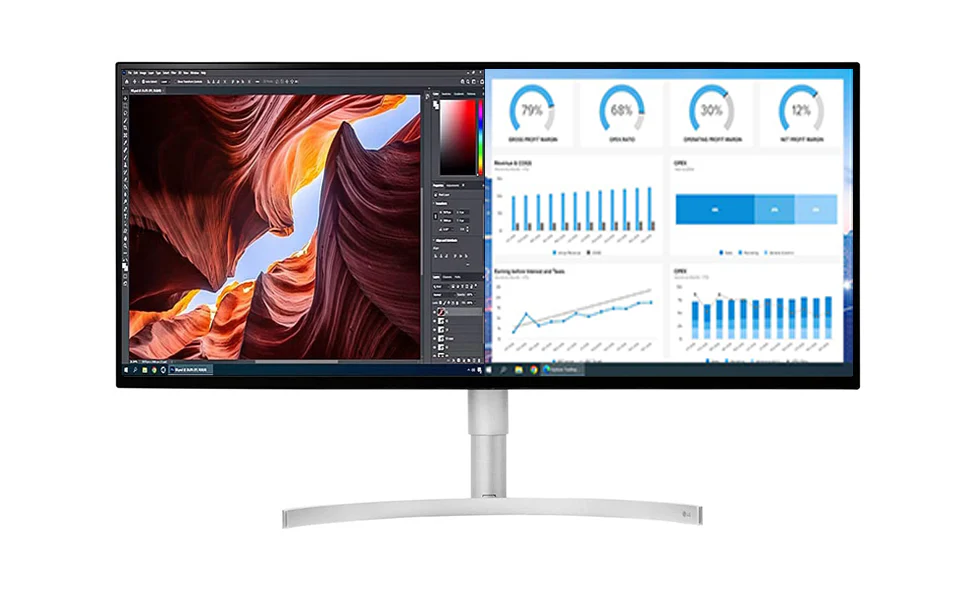The modern world is a fast-paced place, and multitasking is essential for both work and leisure.Using your phone as a secondary monitor is one of the most effective ways to increase your productivity. The installation facilitates the utilization of more screen space, allowing for more efficient workflow, and potentially improving your entertainment experience.
Why Use Your Phone as a Second Monitor?
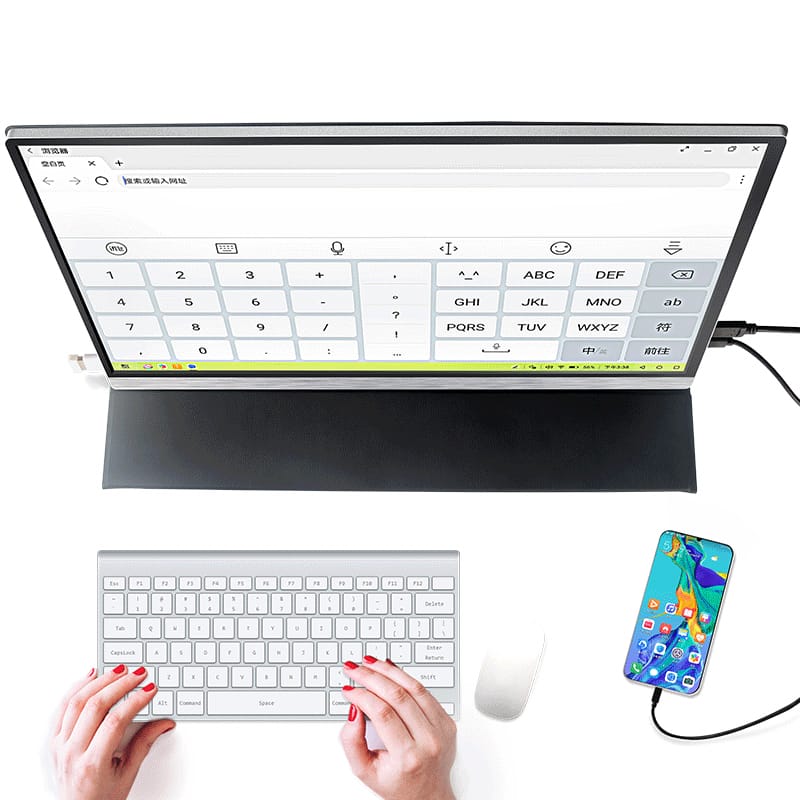
Boost Multitasking
Adding a second screen with your phone can transform how you work:
- Enhanced Workflow: Having a dedicated space for reference materials, emails, or chat apps while focusing on your main screen makes multitasking seamless.
- Organized Desktop: Instead of toggling between multiple windows, split your workload across two screens for maximum productivity.
Portable and Convenient
Using your phone eliminates the need for additional bulky equipment:
- Smartphones are lightweight, making them an excellent portable option when you need an extra screen on the go.
- Apps and adapters make the process easy to set up without additional hardware investments.
Cost-Effective Solution
Instead of investing in another monitor, utilizing your phone is a budget-friendly alternative:
- Free or affordable apps allow you to leverage your existing device.
- HDMI adapters and wireless connections work seamlessly to make the process hassle-free.
How to Set Up Your Phone as a Second Monitor
1. Using Specialized Apps
The easiest way to use your phone as a second monitor is through dedicated apps:
- Duet Display: One of the most popular choices, this app turns your phone into an extra screen with minimal setup.
- Spacedesk: Another excellent option, allowing you to mirror or extend your screen wirelessly.
- iDisplay: Ideal for both Windows and Mac users, offering flexible connection options.
2. Wired Connection via HDMI
For a stable and lag-free experience:
- Use an HDMI adapter to connect your phone directly to your computer.
- This method is perfect for those who require consistent performance, especially for tasks like video editing or gaming.
3. Wireless Solutions
If you prefer a cable-free setup:
- Use apps like Air Display or Miracast to link your phone to your computer wirelessly.
- Ensure both devices are on the same Wi-Fi network for a smooth connection.
Applications for Using Your Phone as Monitor
1. Creative Workspaces
For designers and creatives, an extra screen can:
- Display design references while working on your main screen.
- Host tools and palettes for a clutter-free workspace.
2. Coding and Development
Programmers can benefit by:
- Running code editors on one screen while testing on the second.
- Keeping documentation open on the phone for easy reference.
3. Entertainment and Gaming
Turn your phone into a display for:
- Streaming videos or watching tutorials while working.
- Monitoring in-game stats or chat during gaming sessions.
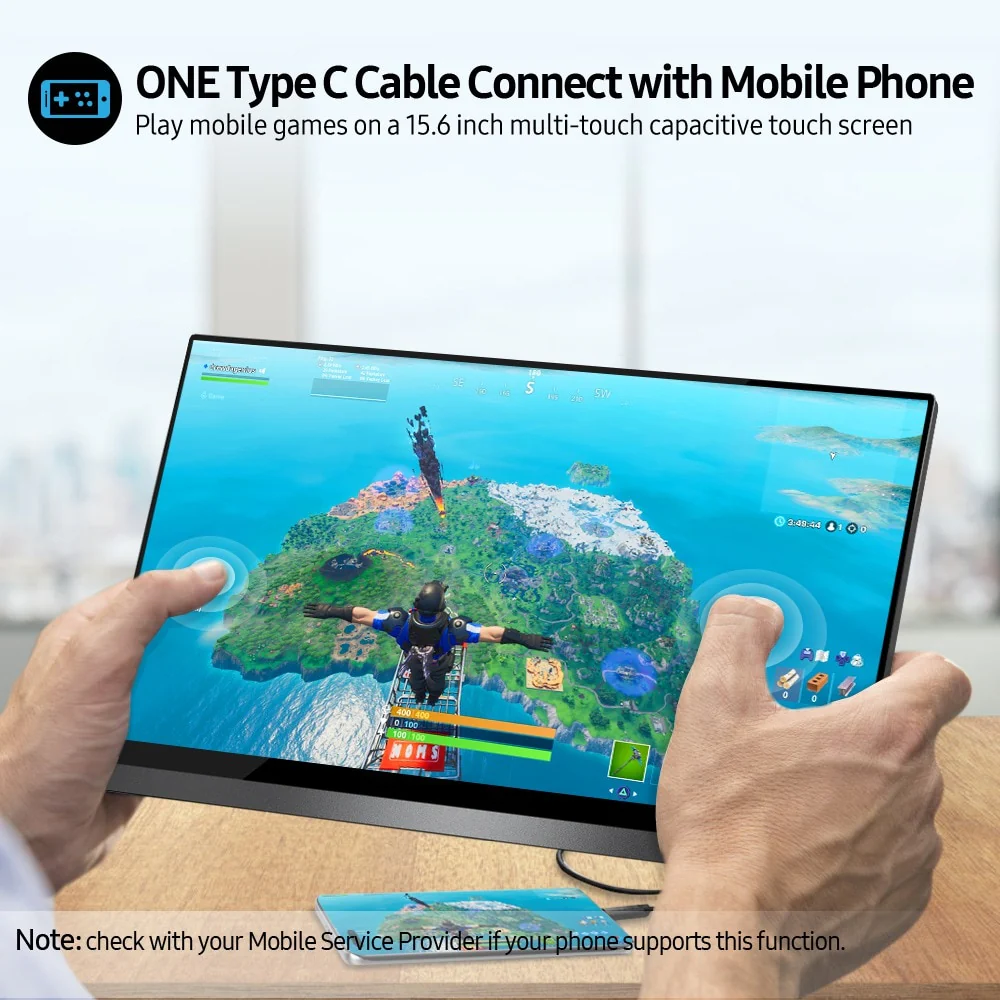
Tips for Optimizing Your Second Monitor Setup
- Choose the Right App: Select an app that fits your requirements, such as low latency or specific features like touchscreen support.
- Optimize Screen Resolution: Adjust the resolution to match your phone’s screen for a clear display.
- Stable Connectivity: Use a strong Wi-Fi network or a reliable wired connection to avoid lags.
- Ergonomic Placement: Position your phone at eye level to reduce strain and maintain productivity.
Benefits of Using Your Phone as a Second Monitor
Increased Productivity
An additional screen helps streamline workflows, enabling you to handle more tasks efficiently.
Enhanced Flexibility
Whether you’re working from home or traveling, your phone can serve as an on-demand monitor anytime, anywhere.
Reduced Costs
Instead of buying a new monitor, repurposing your phone is a practical and economical solution.
Common Challenges and Solutions
1. Lagging or Connectivity Issues
- Ensure your devices are connected to the same high-speed Wi-Fi network.
- Update your apps regularly to maintain compatibility.
2. Compatibility Problems
- Check if the app supports your phone and computer operating systems.
- Use universal solutions like Duet Display for broad compatibility.
3. Screen Resolution Mismatch
- Adjust your phone’s display settings through the app to match your preferences.
Why Choose to Use Phone as a Monitor Over Traditional Monitors?
- Portability: Your phone is always with you, making it a convenient option for on-the-go setups.
- Ease of Use: Most apps are user-friendly, requiring minimal technical knowledge.
- Adaptability: Easily switch between mirroring and extending displays based on your needs.
Final Thoughts
By utilizing your smartphone as both a monitor and adjusting it, you can use it as essentially another monitor for work or play. The combination of user-friendly apps and flexible connection options makes this setup both cost-effective and uncomplicated. Turning your phone into a second screen is the perfect solution to both improving multitasking and increasing workspace.
